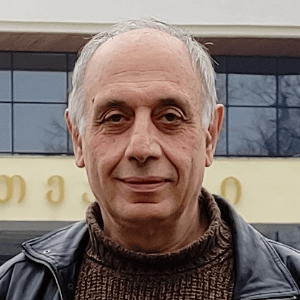Title : Neurochemical theory of epilepsy and mental diseases pathogenesis. Role of the blood-brain barrier
Abstract:
Background and Aims: In epileptology and psychiatry, a huge layer of clinical facts have been accumulated, many of which have not received a proper explanation. An attempt to explain some of the clinical manifestations of epilepsy and mental illness is presented.
Methods: Consideration of these clinical manifestations in the light of the proposed new hypotheses, theories.
Results: In the article, in light of the presented hypotheses about the pathogenesis of epilepsy and mental diseases the author considers certain clinical manifestations of epilepsy, touches upon the neurochemistry of behavior, as well as the neurotransmitter hypothesis of schizophrenia. In the context of this hypothesis, there are discussed the clinical signs of epilepsy such as forced normalization, reinforcement epilepsy activity during sleep deprivation, and other clinical manifestations of epilepsy. Two kinds of “clinical-electroencephalographic dissociation” are proposed. An explanation for the pathogenesis of forced normalization in migraine has also been proposed. It has been suggested that disturbances in the metabolism of different neurotransmitters cause the development of various psychiatric diseases. The presented theory also considers mental diseases and the biological antagonism of schizophrenia and epilepsy. The role of the blood-brain barrier in the development of epilepsy is considered. According to the author's assumption, the blood contains psychogenic and epileptogenic substances, the concentration of which in the blood is higher than their concentration in the brain. If the function of the blood-brain barrier is impaired, their content in the brain can increase and cause epilepsy or mental disorders. In addition to the antiepileptic system of the brain, the concepts of the borderline and extracerebral antiepileptic and antipsychotic systems are proposed.
Conclusion: The intensification of the development of neurochemical theories in epileptology will accelerate the creation of new antiepileptic and antipsychotic drugs.
Keywords: Epilepsy, Neuro mediators, Forced normalization of electroencephalogram image, Behavior, Biological antagonism of schizophrenia and epilepsy, Blood-brain barrier
Audience Take Away Notes:
- The presentation will help attendees better understand the pathogenesis of epilepsy and mental diseases.
- A better understanding of pathogenesis will improve the treatment of epilepsy and mental illness.
- Other faculty could use this presentation to expand their research or teaching in the field of epilepsy and mental diseases.
- The intensification of the development of neurochemical theories in epileptology will accelerate the creation of new antiepileptic and antipsychotic drugs




